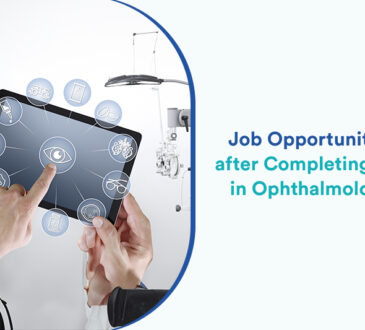
It is easy to imagine that nursing is a single category where everyone carries out the same role, but the truth is that it is divided into many different elements. The exact role that nurses carry out and how effective they are is defined by various factors, and the qualifications they pick up are some of the most important of them.
Bearing this in mind, if nurses want to advance their career, obtaining advanced qualifications is a smart way of doing so. Nurses can start by researching MSN programs, and then seeing how they can apply this advanced degree in one of the rewarding nursing roles that require it.
What is an MSN
A Master of Science in Nursing (MSN) is a graduate degree that can be earned by registered nurses through carrying out further studying and learning new skills. It requires a mixture of theoretical and practical learning, meaning that the nurses who obtain this degree can prove they have a well-rounded set of skills that make them extremely valuable workers. As well as boosting their skills, it can also be a way of specializing in an area that particularly interests them. If they want to help people in a particular area rather than carrying out a generic nursing role, this qualification proves that they have the knowledge needed to do this. Therefore, it helps them to define their future career path and look for the roles that they find more appealing.
Why gaining advanced qualifications should be considered
While working hard as an RN, nurses might think that finding the time to learn new skills will be impossible. However, the good news is that nurses can do this more easily than they think. The first step is to decide on a concentration. If a nurse is interested in healthcare, it probably suits them to focus on this concentration. Otherwise, they might decide to look at the areas that are currently in great demand or that offer the best salary prospects. Getting additional qualifications will give nurses a lot more flexibility in the job market, so it is worth spending some time considering what exactly they want to gain from this approach.
Apart from career needs, nurses will also want to look at how they can offer a better quality of service to the families they work with. Gaining the right qualifications means that nurses will be more confident about the knowledge they possess in helping everyone they treat or advise. This means that they can feel more confident about they job too. As their knowledge and confidence grow, they can obtain a greater level of job satisfaction as well. Some of the roles nurses might look into include leadership roles such as clinical nurse leader or nurse manager.
Overall, nurses will likely feel more in control of their career and the direction it is taking. This is a big deal, as it means that they can enjoy their current role while keeping an eye on the future roles that they are interested in moving towards over time.
How to study for advanced qualifications
There are different ways of studying for advanced nursing qualifications. It is no surprise that studying online is the most convenient and flexible way of studying these days. With so many ways of learning new skills now offered over the internet, it is a learning method that people are increasingly comfortable with and familiar with. If a nurse has a busy lifestyle or already works in nursing, this could prove to be the most effective way of learning the new skills needed without it having a negative effect on the rest of their life. They just need to adapt their routine to carry out their training at the time that suits them best.
It is easy to find RN to MSN programs online with an impressive track record in pass rates. Courses like those offered by Wilkes University are designed to be carried out 100% online while focusing on the advanced clinical skills that are currently in demand in the nursing sector. Nurses can choose from programs in Psychiatric/Mental Health, Adult-Gerontology Primary Care, and Family Nurse Practitioner.
To enroll in a program, an applicant must have a registered nurse qualification and an associate degree in nursing. They will be expected to have at least one year of RN clinical experience before starting the NP clinical courses, which generally begin in the second year of the training program. Students will then have up to 36 months to complete the course, meaning that they can learn at a pace that suits them.
Provide a greater level of patient care
By specializing and learning new skills, nurses will feel confident about providing better patient care. Like any other career, nursing should be viewed as a chance to follow a continuous improvement path as nurses pick up new skills along the way, meaning that their performance gets better year after year.
If a nurse decides to aim for an MSN as a family nurse practitioner, this is a wide-ranging role, so they will need to gain the appropriate experience in assessing and diagnosing many different conditions, as well as seeing how to treat them effectively. The same applies to the other specialties, by deciding what area a nurse wants to study, they can begin to see how they can provide a high level of patient care in the future. It is a great way to set a laser focus on their future by thinking about how they want to treat their patients.
Exploring the job market with a new perspective
Of course, any new skill that is gained must be assessed with the current and future job market in mind. There is no point in spending a lot of time studying for something that does not offer prospects of a bright future. The good news in this respect is that nursing, in general, is a career in huge demand and the salaries reflect this. Different sources provide varying figures for the average nursing salary; therefore, nurses should be sure the salary is based on the exact role they have in mind and where they hope to work.
However, in general terms this is an area of fast growth where salaries are expected to climb. One of the possible reasons for this is that the number of newly qualified nurses is not high enough to keep up with demand. Some sources suggest that RNs could see their pay rise by almost $13 per hour by 2033. This is also shown in recent details released by the U.S. Bureau of Labor Statistics. They have classed registered nursing as one of the careers with the fastest growth right now. It is thought that the US will need over 193,000 more registered nurses in the next decade, and the current rate of newly qualified nurses is not high enough to meet this level of demand.
When looking specifically at nurses with an MSN qualification, it can be seen that the rate of growth is even more impressive. MSN-qualified nurses tend to earn more than RNs, and this trend should continue as these workers put their extra qualifications and knowledge to good use.
Take on more responsibility
Gaining advanced nursing qualifications can prove to be an excellent way of taking on more responsibilities and leading a team of nurses. One of the roles that might seen in this respect is that of the clinical nurse leader. This role requires a Master’s educated nurse according to the American Association of Colleges of Nursing, and they must be ready to work across the full range of healthcare settings and situations. This role is heavily focused on improving the outcome of patient care at all levels.
A clinical nurse leader does this by carrying out tasks such as care coordination, team leadership, and risk assessment. Their overall goals include improving the quality of care and implementing best practices based on the evidence they have witnessed and gathered.
Work as a nurse educator
Another role worth pursuing is that of the nurse educator. This is another role that nurses can aim for if they follow the route of RN to MSN. A mixture of nursing knowledge and teaching skills can be used. A nurse educator trains new nurses, making them a crucial part of the future of the healthcare industry. It is a hugely responsible role where they help to shape the future of the industry by making sure that new nurses are correctly trained to carry out their roles effectively.
As well as showing newcomers the likes of how to collaborate and how to care for patients, a nurse educator is also likely to carry out several other tasks as part of their working routine. These include carrying out research in hospitals and helping to create training materials. They are also viewed as a role model for the new nurses to aspire to. Nurses will find this role in several settings. These range from academic settings such as nursing schools and colleges to hospitals. As well as the teaching elements, many nurses with advanced qualifications are attracted to this role because of the chance it gives them to play an active part in shaping the future of the healthcare industry.
Deal with complex cases more effectively
Another benefit of studying for the MSN qualification is how it prepares nurses for dealing with complex cases. This can be seen in the adult-gerontology primary care sector, for example. This area of healthcare is often particularly complex and the extra studying carried out to obtain an MSN certification is vital. This can lead to a leadership role in a setting where adult care is provided, which can range from care homes to health centers. The challenges of introducing best practices and incorporating the latest technology can be met more effectively once nurses have carried out the full training and feel confident about their knowledge and decision-making skills.
Change in working conditions
It is obvious that nursing is an industry likely to continue growing rapidly for the next decade or more. It is a role that is needed in so many different settings and for numerous reasons which offers a massive amount of flexibility in how nurses progress their career.
Having an RN certification is a great start, as it allows the chance to secure an initial nursing role and take the beginning steps within this career. However, by gaining advanced nursing qualifications, nurses will be given far more options for pursuing a rewarding career that suits them perfectly.
The roles that have been reviewed are available across the US and abroad. Earning an MSN is a solid decision towards taking the next step for a nurse who wants to further their career. Many of the senior and leadership roles that require this qualification is ideal for those who want a more flexible lifestyle. This is just one of the reasons for making an effort to continue learning and gain a new qualification.
If nurses want to make a difference in the healthcare industry and boost their career at the same time, taking some time to consider MSN options makes sense and could lead to making one of the best decisions in their nursing career.



